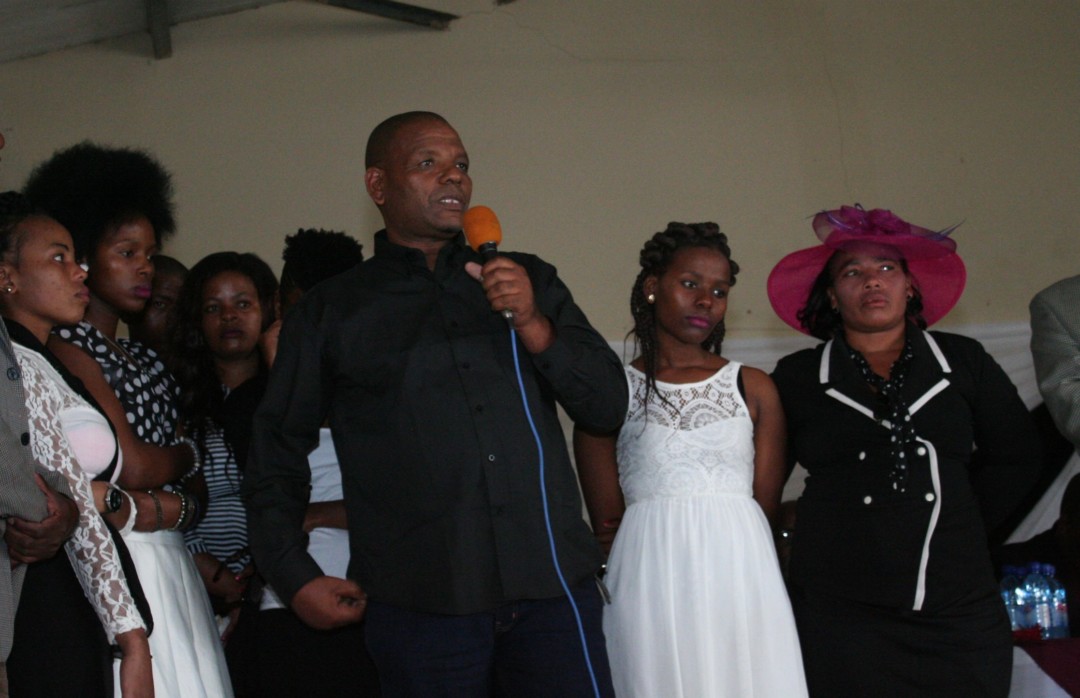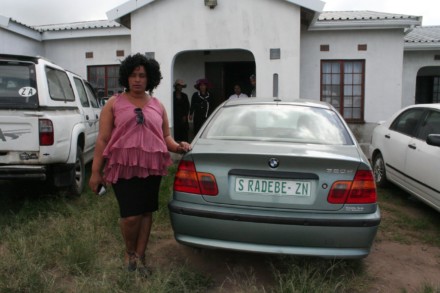22 March 2016
Mbizana, Eastern Cape, South Africa
Sikhosiphi Radebe
Profession
Community
Motive
Environmental and indigenous activism
Political dissent


Adolfo Olivas


Ahmed Divela


Amit Jethwa


Artan Cuku


Babita Deokaran


Bayo Ohu


Berta Cáceres


Bhupendra Veera


Bill Kayong


Boris Nemtsov


Boško Buha


Chai Boonthonglek


Charl Kinnear


Chut Wutty


Chynybek Aliev


Cihan Hayirsevener


Daphne Caruana Galizia


Darío Fernández


Derk Wiersum


Deyda Hydara


Édgar Quintero


Edmore Ndou


Edwin Dagua


Federico Del Prete


Fernando Villavicencio


Gezahegn Gebremeskel


Gilles Cistac


Habibur Mondal


Igor Alexandrov


Jacob Juma


Ján Kuciak


Javier Valdez


Joannah Stutchbury


José Ángel Flores


Jules Koum Koum


Kem Ley


Luis Marroquín


Mahamudo Amurane


Marcelo Rivera


María Elena Ferral Hernández


Marielle Franco


Milan Pantić


Milan Vukelić


Muhammad Khan


Nelson García


Nihal Perera


Oliver Ivanović


Orel Sambrano


Perween Rahman


Peter R. de Vries


Rajendra Singh


Salim Kancil


Sandeep Sharma


Sikhosiphi Radebe


Slaviša Krunić


Soe Moe Tun


Victor Mabunda


Virgil Săhleanu


Wayne Lotter


Yuniol Ramírez


Zezico Guajajara
22 March 2016
Mbizana, Eastern Cape, South Africa
Profession
Community
Motive
Environmental and indigenous activism
Political dissent
In March 2016, Sikhosiphi ‘Bazooka’ Radebe (51), was gunned down outside his home in the Lurholweni township in Mbizana, Eastern Cape, in front of his teenage son. The attack was allegedly committed by two men dressed as officers of the South African Police Service (SAPS).
Radebe was a man of many dimensions: a community leader; a father; a mechanic; the founder of a soccer club for unemployed youngsters; a minibus-taxi owner; and a former member of Umkhonto we Sizwe, the defunct armed wing of the African National Congress. It was Radebe’s prowess with the soccer ball as a youngster, however, that earned him the nickname ‘Bazooka’. But what distinguished him in adulthood was his leadership of the Amadiba Crisis Committee (ACC) and, in particular, his vocal opposition to two major ‘development’ projects supported at the highest levels of South African government.
The first of these is an Australian-led plan to extract up to 346 million tons of ilmenite, titanium and other heavy minerals from the Xolobeni area in the Eastern Cape’s scenic Wild Coast region. In fact, the name Amadiba comes from one of the traditional councils situated along this 22-kilometre stretch of Indian Ocean coastline targeted for mining by Transworld Energy Mineral, a subsidiary of Perth-based Mineral Commodities Limited (MRC).
Although Radebe and fellow members of the ACC were also opposed to a separate national-government plan to build a toll highway through the middle of their subsistence farmlands on this same coast, it was the mining proposal that worried Radebe the most because of the risk it poses to families in the region. Lawyers acting for the ACC said that up to 70 families are at risk of being evicted from their ancestral land if the plan goes ahead.
It is against this background that we come to the evening of 22 March 2016, when Radebe was murdered outside one of the two homes he had in this area.
Radebe’s family and friends said that the two men posing as police officers were driving a hijacked white VW Polo sedan with a flashing blue siren on the roof. A curious dimension, they said, was that the car had allegedly been hijacked shortly before the murder, and the two hijack victims were still in the car. His close family and friends claimed that these witnesses were not properly interviewed by police, and that the abandoned vehicle was not examined by forensics experts.
These suggestions of mismanagement add to the widely held suspicion that Radebe’s death was not a ‘routine’ murder. Nonhle Mbuthuma, a fellow executive-committee member of the ACC, for one, is convinced that Radebe was the victim of a coordinated hit, a consequence of his influential role in the committee: ‘He was the stronghold of the ACC,’ said Mbuthuma. ‘He was loud. He was not hiding … He could see that the strategy was to weaken the leadership of the ACC, so that mining could go ahead. The strategy was to get rid of the leaders, to kill the resistance.’
Mbuthuma also has good reason to fear that she could be the next target. During a telephone conversation with Radebe shortly before he was murdered, Radebe had warned her about the existence of a hit list featuring the names of three senior ACC leaders. It was during this call that Radebe gave her the chilling warning: ‘They are not playing. They want to kill us.’
Just 70 minutes later, Mbuthuma received another call, this time to say that Radebe had been shot. Thinking that he was only wounded, she raced over to his house to help. ‘I did not know he was dead,’ she said. ‘But when I saw him lying there on the ground covered by his blanket, I lost hope.’
‘I should have been crying like hell when I saw his body,’ added Mbuthuma. ‘But Bazooka’s warning words came back to me: “Don’t allow them to take you. Make sure your bones can be found by your family.” He was warning me…’
Mbuthuma’s life has been significantly altered by Radebe’s murder. ‘I feel powerless at times because, the way I see things, it does not give me hope that we will be protected,’ she revealed. ‘As a mother, I feel stressed. Now it could be me at any time. Maybe I will die and there will be no justice. If justice is done, there is closure. But if there is no justice, it leaves a sore that is never closed. Bazooka’s children want to know who killed their father. Their hearts are bleeding.’
While a senior police officer has suggested that Radebe’s death could be related to violent feuds between taxi owners in the area, Mbuthuma believes this theory has no foundation. Instead, she said that the murder must be viewed against a wider pattern of attacks against community members perceived to be anti-mining. She noted how about six months before Radebe was killed, several members of the anti-mining community around Xolobeni had been wounded, threatened or intimidated during the so-called Christmas attacks of 2015.
Mbuthuma also revealed that Radebe suspected that his cellphone was being monitored and his movements tracked, and that attempts had been made to bribe him to gain his support for mining. Indeed, according to John Clarke, a social worker who has been advising the Amadiba community for nearly 12 years, Radebe had rejected a R600 000 bribe offered to him in 2010 by a senior government official to persuade the ACC to support mining. Shortly after Radebe’s murder, MRC issued a statement strongly denying any involvement.
However, more than three years later, no one has been arrested for the murder, giving credence to the belief that the investigation was botched or even deliberately sabotaged by police officers and under the influence of senior government officials. Mbuthuma said she believes that the failure to arrest Radebe’s killers is due to the involvement of ‘higher politics’ and that a senior police official was ‘blocking the investigation’. Richard Spoor, a prominent human-rights lawyer acting for the ACC and Radebe’s family, also believes that the police investigation was ‘bungled from the start’.

Wiseman Radebe (centre), flanked by family members, speaks at a memorial service for his slain brother, Sikhosiphi ‘Bazooka’ Radebe

Nolwazi Radebe at the entrance to her brother’s home, where he was shot dead on 22 March 2016
Although the identity of the killers remains unknown, Spoor said that proposals to mine in rural areas often create perverse financial incentives for members of local communities to ensure that mining goes ahead. ‘People in Xolobeni fear for their lives… I’m not saying that the company has done that, but when you bring in money and rewards into this type of environment you are playing with fire. It is dangerous stuff,’ he said, adding that it was unclear who would benefit directly from a community empowerment structure set up by the mining company.
Earlier in 2018, the Radebe family sent a legal letter to the National Prosecuting Authority and the SAPS Directorate for Priority Crime Investigation (The Hawks). ‘There are strong suggestions that the investigation has been intentionally impeded,’ attorneys Henk Smith and Johan Lorenzen stated in the letter. ‘At best, the investigation has been given insufficient attention and resources.’
Smith and Lorenzen also noted how the family, frustrated by the police failure to make any arrests, had hired a private investigative group, The iFirm, which is led by two former police generals. In a confidential report to the family, The iFirm concluded that ‘The non-cooperation of the SAPS members made this (private) investigation an impossible mission.’
However, The iFirm also expressed the belief that basic police measures are still available to solve the case.
Smith and Lorenzen said: ‘We are gravely concerned that such long and unjustified delays in delivering justice threaten the integrity of the justice system and cultivate a culture of impunity that places our clients in grave risk. The longer this investigation languishes, the lower the prospects of successful prosecution become.’
Although four months after the murder, MRC announced that it would divest its majority 56 per cent interest in the Xolobeni dune-mining venture, nearly three years later the company does not appear to have done so.


16 January 2019
Accra, Ghana
Ahmed Divela


23 August 2021
Johannesburg, South Africa
Babita Deokaran


20 September 2009
Akowonjo, Lagos State, Nigeria
Bayo Ohu


18 September 2020
Cape Town, South Africa
Charl Kinnear


16 December 2004
Kanifing, Gambia
Deyda Hydara


22 April 2017
Beitbridge District, Zimbabwe
Edmore Ndou


21 April 2018
Johannesburg, South Africa
Gezahegn Gebremeskel


3 March 2015
Maputo, Mozambique
Gilles Cistac


5 May 2016
Nairobi, Kenya
Jacob Juma


15 July 2021
Kiambu, Kenya
Joannah Stutchbury


4 November 2011
Yaoundé, Cameroon
Jules Koum Koum


4 October 2017
Nampula, Mozambique
Mahamudo Amurane


10 January 2018
South Africa
Victor Mabunda


16 August 2017
Dar es Salaam, Tanzania
Wayne Lotter